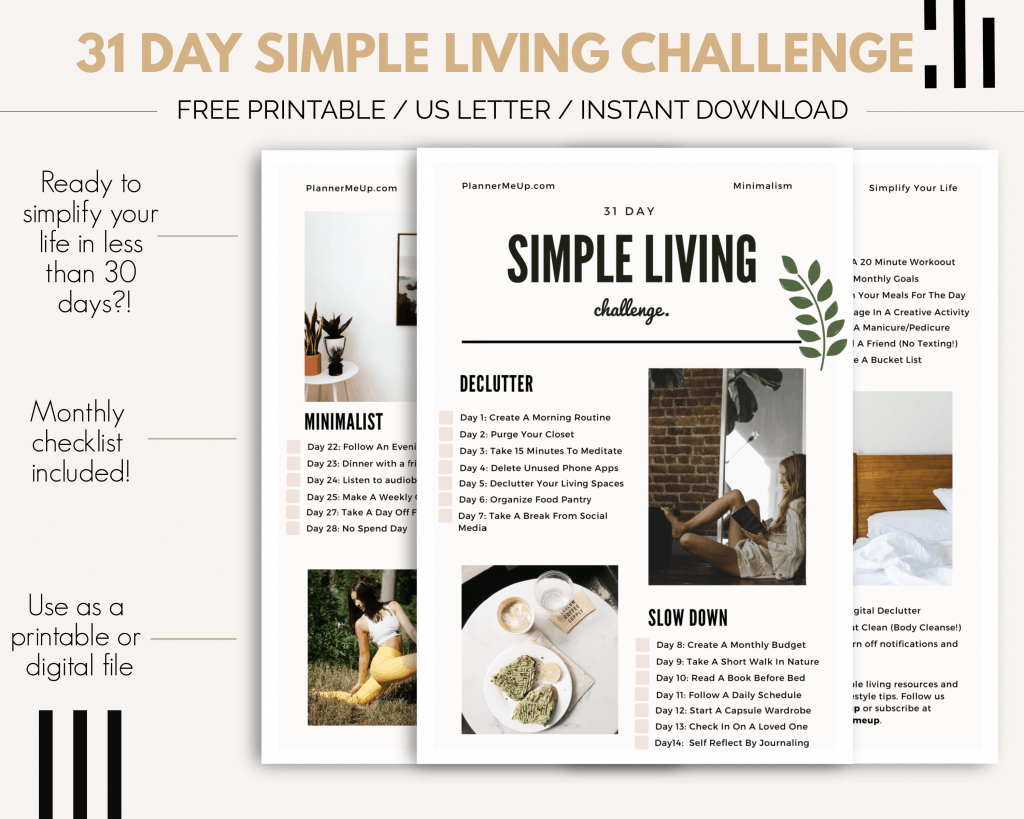
It’s the beginning of the year and we all know what that means?… Everyone is setting goals, making vision boards, and new year’s resolutions. That’s all good and well, but what about simply following an intentional routine?
I no longer question why people forego New Year’s goals altogether. Who wants to disappoint themselves come the middle of the year when they haven’t accomplished their goal.This is very common. But rather than ditching goals and resolutions completely, commit to an intentional routine. An intentional routine goes hand in hand with the blueprint of your life.
There’s no need to write out your goals or meditate on them day and night when you’re aware of where you’re headed.Intentional routines require self-discipline, optimism, and a mature mindset. Embedding goals into your daily routine makes it easier to accomplish them. Your personal goals eventually become a way of life.
Without deadlines, endless weekly planning or quarterly check-ins, intentional routines simplify life and put much less pressure on your conscience.
Now, when the middle of the year rolls around, you aren’t throwing a pity party because you haven’t accomplished half of your goals list.
So, do you want a pressure free year where your life goals aren’t always at the forefront of your mind?
Try your hand at developing an intentional routine that’s intertwined with your goals.
But first, let’s define what an intentional routine is?
What is an intentional routine?
An intentional routine is a purposefully designed and structured set of activities or habits that align with our goals and values.
It encompasses consciously planning and organizing your daily, weekly, and monthly activities and habits to focus on what matters most to you.
Think of an intentional routine as a deliberate and mindful approach to what you do in your everyday life. Intentional routines foster productivity, personal growth, and overall well-being.
Now, how can this help with goal accomplishment? I’m glad you asked.
A daily routine shouldn’t just be a short list of tasks you need to check off to feel productive for the day.
What actions do you take every single day that will get you closer to your dreams?
- If you want to become a professional athlete, you’re eating healthy, exercising, and practicing your sport.
- If you want to become a chef, you’re going to culinary class, creating new recipes, or working on your life skills.
- If you want to be an author, you’re writing before work, plotting different storylines, or marketing your work.

Related Posts:
8 Areas of Life To Focus On Personal Growth In The New Year
Goals In Life For A Woman With Purpose
How do you break away from the mundane and dedicate time to what you’re passionate about?
When you take a step back and question why you’re doing certain things, you gain clarity about your purpose?
Or maybe you’re indulging in meaningless activities that don’t move the needle in your business or steer you in the right direction?
Stagnation is seeing where you’d like to be within a certain time frame, yet standing still and moving absolutely nowhere. This can go on for months, years, sometimes even decades.
One minute you’re partying and carefree in your 20s, then you look up and the age of 40 is creeping around the corner. What’s changed? What people are still in your life or removed from it? Is your career or business further along?
When you commit to your goals with an intentional routine, these are issues you don’t have to worry about. You know why?
Consistency.
Don’t neglect your blueprint, as it is a part of you. It’s who you are – right now.
But the first step is to fully understand your goals. Make sure they’re aligned with the person you want to become in the next ten years.
What short and long-term goals have you been working on for the last few years? If you haven’t reached your goals, it’s likely because they aren’t a part of your daily routine.
Let’s say you’ve been wanting to come down a few sizes. Your habits need to reflect that goal.
Are you eating 3-4 healthy meals a day and moving your body throughout the day? If you’re baking desserts, neglecting portion sizes, and lounging around with no exercise, then your routine is unbalanced.
What if you have a financial goal to save more this year?
Are you living below your means in order to save a target amount from your monthly paycheck? If your income isn’t high enough, have you put a plan in place to get an additional source of income?
There are plenty of side hustles you can include in your weekly schedule, such as gig work, house hacking, or starting an online business that will supplement the income source you already have.
What goals do you want to get serious about?
You should be able to pinpoint every action in your day back to a personal goal. Even if it’s getting more sleep at night.
What time are you turning off your devices (a.k.a distractions)? Are you eating dinner at sundown? Is your evening routine with your children completed before nine o’clock?
Put some action behind your intentional routine and examine your why for each goal.
- Why do you want to eat healthier and lose weight?
- Why do you want to rest more?
- Why do you set aside time for your hobby every week? How does it make you feel?
- Why do you want to monetize your talent over time?
- Why do you want to make and/or save more money? How will it change your life overtime?
When you understand why certain goals are important to you, your purpose in life becomes clear.

Related Posts:
5 Reasons Why Time Is Important
3 Unexpected Benefits Of Daily Routines
How to do things intentionally?
Intentionality takes practice. There are many people who wake up every day with no end goal in mind.
They aren’t intentional about what they eat. Eating is not intentional for them. They eat just to make their body feel full or pass the time.
They aren’t intentional about productivity at work and complete projects at the very last minute or past the deadline.
They aren’t intentional about the people they spend time with.
Would you rather carve out time for dinner with a close friend or potential mentor, or spend hours at the bar every week with the patrons who frequent happy hour?
One choice is more intentional than the other and returns more value.
This is the way you do things intentionally. What’s going to give you a ROI?
Take heed of the advice of older people when they share what they would have done differently when they were younger.
They may not have lived intentionally, but you still have a chance to do so.
How can I be intentional every day?
Designing an intentional routine isn’t difficult.
One activity I’ve always found helpful is writing two columns. Label one column, goals, and the other intentional actions. Once you complete your goals list, you can add the corresponding actions in the second column.
Now it’s time to create your habit tracker and a daily schedule that incorporates both your goals and actions. This will, ultimately, result in the development of your intentional routine.
Review both columns and write out the habits you need to follow in order to achieve your goals. Don’t get too specific or in the weeds on this part, goal friends. Keep your habits broad and general.
Remember, an intentional routine is fluid, and should feel effortless overtime. It takes 21 days to form a habit and 90 days to make it a permanent lifestyle change. At some point, your habits will just be tasks in your morning, afternoon, or evening routines.
You don’t have to track habits when they are a part of your lifestyle, but habit tracking is great for maintaining consistency.
The next step is to block out time on your schedule for goal specific activities. What time of the day do you prefer to indulge in your personal interests?
Don’t allow your work schedule and responsibilities at home to prevent you from leaning into your purpose or long-term goals.
Set aside time in your schedule to take a class, build your business, or get creative with the hobbies you have outside of work and your family. It can be a few hours or 30-minutes out of your day to hyper-focus on what fills your life with purpose.
Do you enjoy mentoring, crocheting, gardening, weight lifting, or have a desire to re-enroll in school?
You must make time in your schedule to water your dreams. Without proper dedication and attention, they won’t bloom. Creating a loosely structured intentional routine can resolve this.
Intentional routines aren’t rigid and stressful. Your weekly routine shouldn’t include an action for every goal you’d like to accomplish over the next five years.
Pick one short-term goal to focus on for the next few months out of 3-5 areas of your life. Some common personal goal areas to focus on include relationships, fitness, self-improvement, finances, or spirituality.
You should be able to make at least 3 intentional actions that will get you meaningful results and closer to reaching your life goals.

What is an example of intentional action?
An intentional action is purposeful behavior that is driven by a specific goal, objective, or desired outcome.
It requires thoughtful decision-making and awareness of your actions, with the deliberate intention of achieving a particular result.
Mindfulness, focus, and a clear understanding of the purpose behind the behavior characterize intentional actions.
Distractions and unproductive habits often thwart our intentional plans. There are some days where we may not feel up to doing a full morning or evening routine.
And that’s completely fine. As humans, we get sick, emergencies arise, and let’s face it, bad days exist.
We aren’t robots. Life isn’t about following your routines and checking off habits every single day.
That’s not realistic and these are setbacks we all experience. But leading a lifestyle without following weekly plans or developing good habits will yield less desirable results down the line.
Intentional actions should make up your blueprint. An example of an intentional action is meeting new people and ingraining yourself into a community.
How do you make friends or form a support group? By being a friend and supporting others in return. If forming connections and meeting new people is a goal, say ‘yes’ to showing up.
Accept invites to events or intimate gatherings. Lend a helping hand by volunteering or providing resources. Reach out first and keep the lines of communication open.
People who are worthy and appreciative of your friendship will reciprocate those intentional actions in return.
Want to practice living a more intentional life? Incorporate personal goals and self care in your daily routine by downloading the 31-day simple living challenge printable for FREE.
How do you develop an intentional mindset?
An intentional mindset requires positive thinking. I’m a firm believer that you can manifest the life you want as long as intentional actions align with your programming.
There’s a level of confidence, consciousness, and self-discipline that comes with the formation of an intentional mindset.
You must believe in yourself and the blueprint for your life.
There are various manifestation lists you can create to help you excel. We apologize, goal friends, but we have zero tolerance for negative thinking.
Be mindful of your routines, habits and how they make you feel, and how you treat others.
Journaling can also assist with developing an intentional mindset.
Responding to daily journaling prompts or weekly reflection questions will properly assess what you accomplished and didn’t accomplish for the week; what you need to work on, and ensure you remain committed to your goals and stay aligned with your overall purpose in life.
Intentionality is powerful when you embrace your blueprint and customize intentional routines that fit the lifestyle you want to achieve.

I teach entrepreneurs how to simplify their life and business with less + own their time and maximize productivity towards their personal and monetary goals.






Leave a Reply